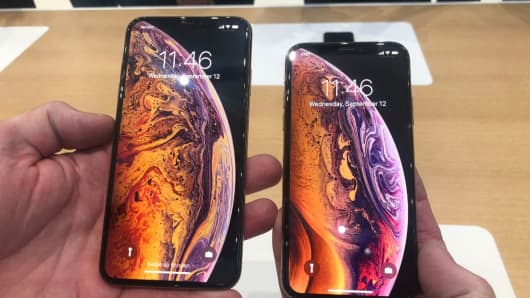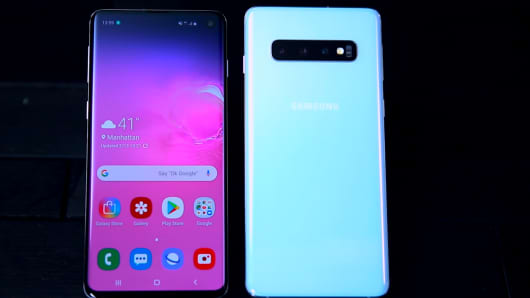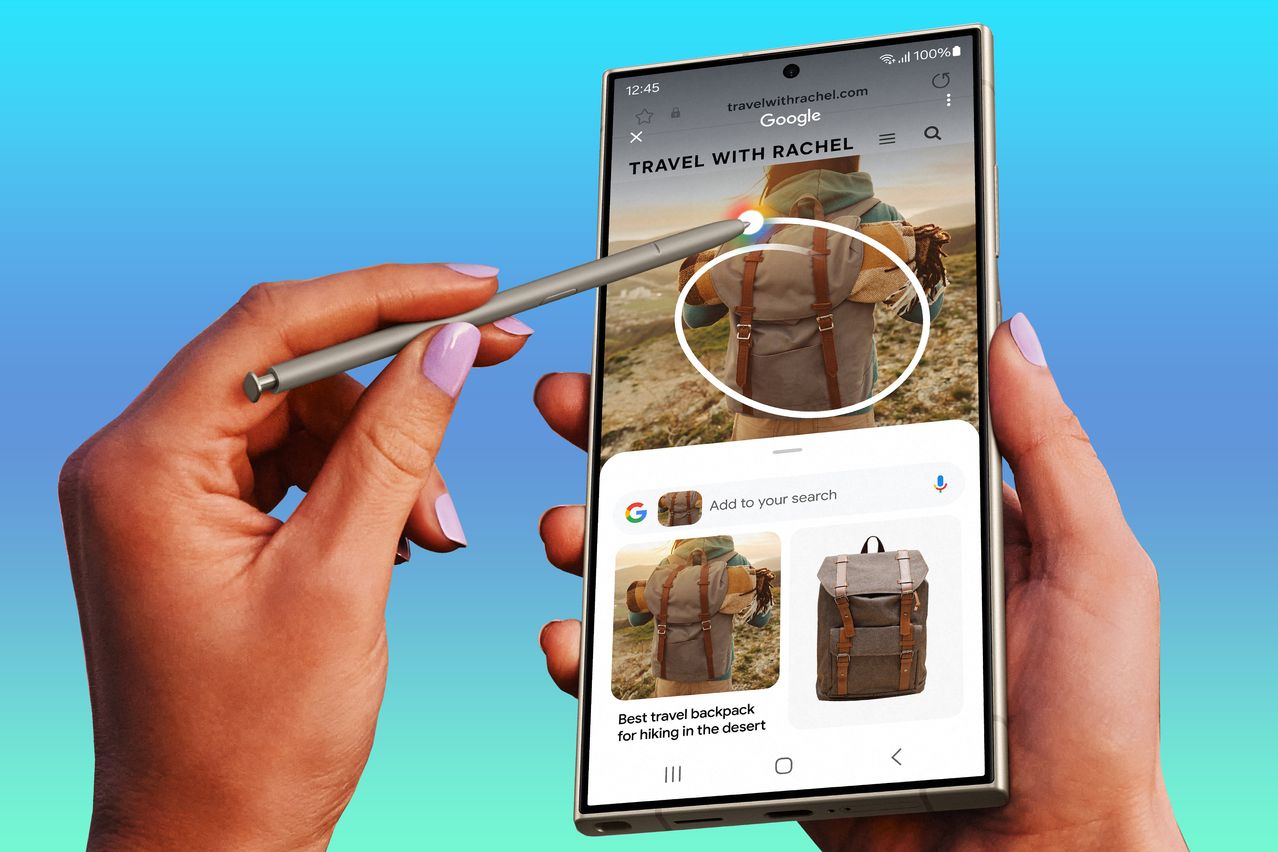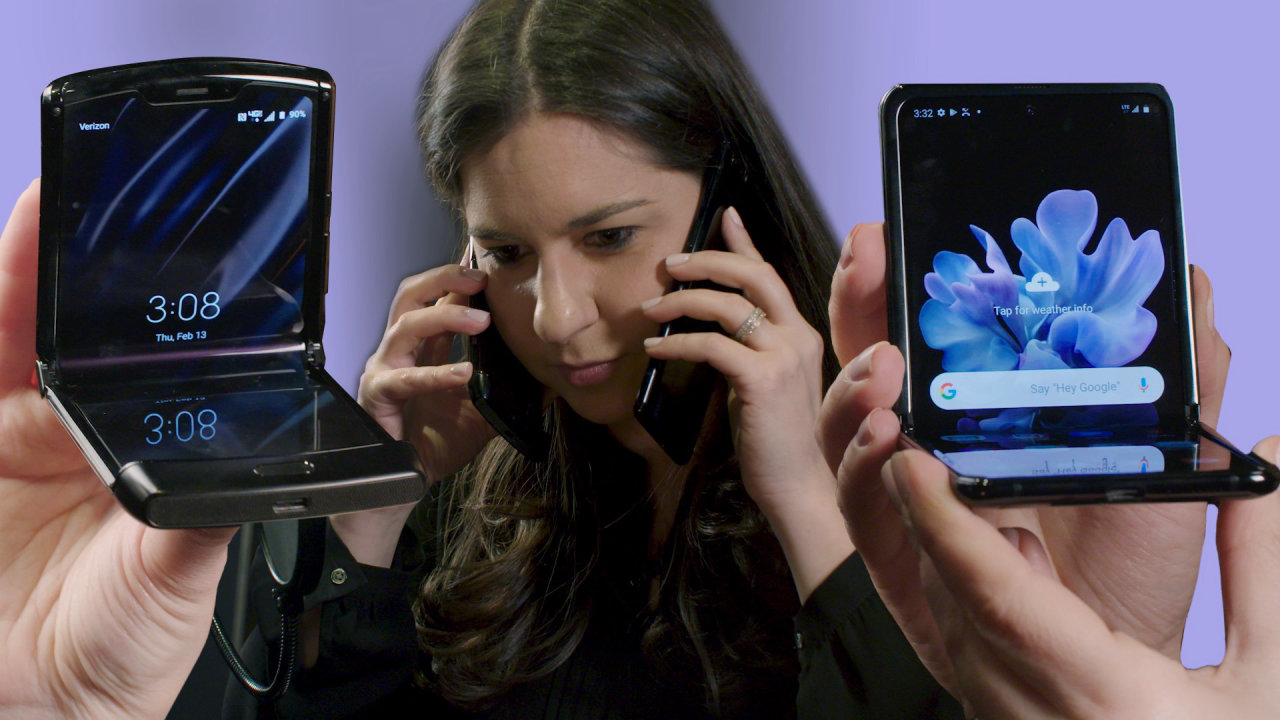This article is more than
5 year oldSamsung is making the same mistakes as Apple did with its new phones
Samsung announced four new phones on Wednesday and while they are exciting premium phones, the company is proving that it's making the same mistakes as Apple.
There's a lot of evidence that consumers don't want to spend a bunch of money on phones anymore, for a variety of reasons I'll talk about.
These mistakes are allowing companies like Huawei and Xiaomi to rapidly gain ground on Samsung and Apple, two of the world's largest phone makers by shipment volume.
Mistake #1: The phones are too expensive for most people
Samsung's new phones cost too much. The entry-level Galaxy S10e starts at $749, which might attract more budget-conscious buyers, but the Galaxy S10 starts at $899 and the Galaxy S10+ costs $999. Those prices increase as you add more storage or RAM, too. People don't want to spend this much.
Consumers have shown, and Apple has said, that its customers are holding on to their phones longer for a couple of reasons. First, their phones are lasting longer, which means customers aren't as ready to upgrade as they once were. Speaking specifically about the iPhone, Bernstein analyst Toni Sacconaghi said earlier this month that replacement cycles are elongating because carrier subsidies changed and phones cost more.
Just think about it: years ago you'd go to your carrier, buy a phone on a two-year contract and, when it was up, pay $199 for another phone for two years. Those carrier subsidies made phones appear to be cheaper than they were, which meant consumers thought they were spending less. Now you're looking at paying full cost for a phone or taking out a line of credit just to pay it off every month. Nobody wants to go through this every year or two.
Mistake #2: No "must have" features
People used to wait in line for new phones because they had far better cameras, way sharper screens and faster data speeds that were must-have features. But we've seen a slowdown in that sort of innovation. Most people I talk to just want a phone with longer battery life.
Instead, Samsung introduced phones with more colorful displays, fingerprint readers that hide under the screen, and a fun feature that lets you charge wireless headphones by placing them on the back of the phone. These are compelling, don't get me wrong, but why should someone with a Galaxy S8 with an already-nice display and facial recognition, want to spend another $850 or $999 for these upgrades? They're not compelling enough for consumers to spend this sort of money.
There's also a Samsung Galaxy S10 5G that promises faster data speeds, but it's not launching until the second quarter. We've also seen no reason why faster data speeds will drastically improve our experience outside downloads. When LTE phones came out, we could suddenly place video calls and stream music. That made them must-haves. What is 5G going to add that will make consumers really need a phone that supports it?
We saw a similar innovation lag with the new iPhones. The screens got bigger, the processors got faster, and the cameras were slightly improved. All great features! Millions of people still bought them, but fewer than historically and not in markets where Apple needs to make up ground, like China. If anything, all I heard were complaints about how the new iPhones cost too much.
Mistake #3: Missing the boat on China
Apple's fight in China has had an adverse affect on its iPhone revenues, with shipments crashing nearly 20 percent there because of expensive prices. But at least Apple is on the map in China, where it's the fourth largest seller of phones. Samsung isn't even in the top 5.
Starting the official sales of iPhone XR smartphones in a Moscow re:Store shop, an Apple authorised reseller.Huawei, Xiaomi, Oppo and other local brands are taking advantage of Apple and Samsung's missteps in the market by selling affordable phones with strong local brand names. The strength of the U.S. dollar is hurting Apple, and it's probably not helping Samsung either.
To be fair, Samsung has more affordable budget phones that it sells in these markets, but those, too, seemed to have failed to gain traction in China, or at least enough to bump it into the top 5 vendors there. And the new ones aren't going to help.
Keywords
Newer articles
<p>Former CNN host discussed ongoing anti-Israel protests on college campuses</p>
Tiffany Haddish Says Common Is the Only Celebrity She's Been 'Entangled' With, Claims He Chased Her for 2 Years
Rihanna Is “Keeping it Real Simple” for This Year’s Met Gala
US Congress threatens ICC over Israel arrest warrants
Kendrick Lamar escalates Drake feud on the scathing diss track, Euphoria
Israel fears Netanyahu's arrest over Gaza war as international court considers warrant
Doja Cat steps onto red carpet in lingerie
Tiger’s heartbreaking daughter revelation
Rwanda must halt ‘support’ for M23 rebels, withdraw troops from DR Congo, says Macron
Over half of Israelis believe Netanyahu should resign immediately - poll







